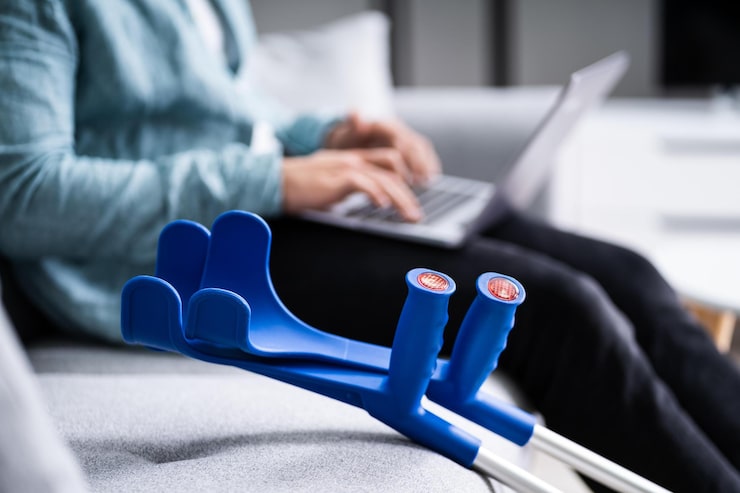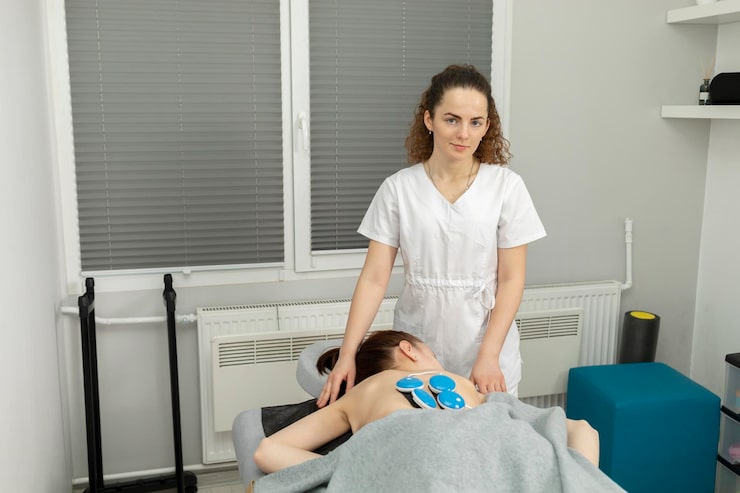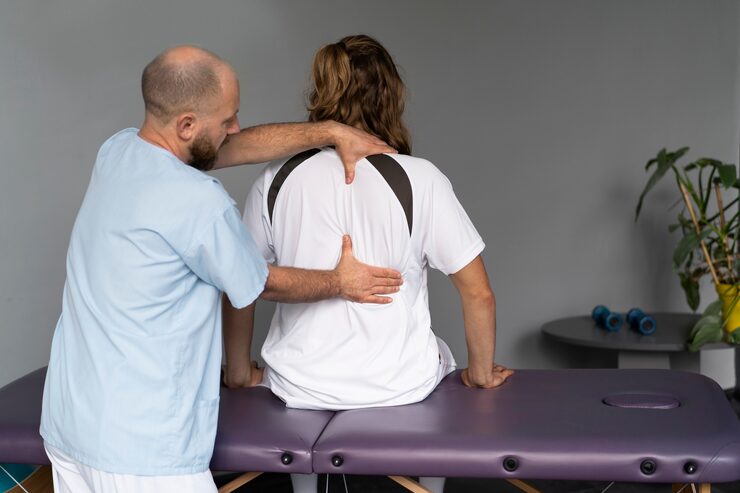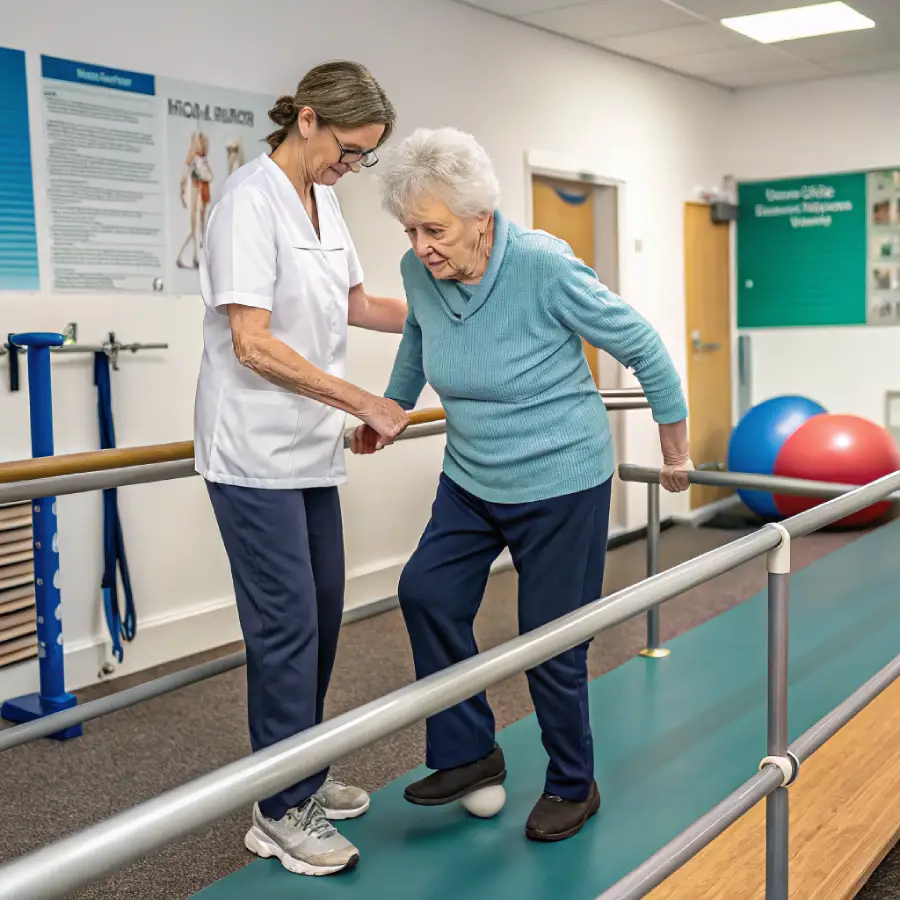If you’ve just had surgery, you’re probably focused on healing and getting back to your normal life. But you might be wondering how physiotherapy fits into your recovery process. Well, you’re in the right place! Physiotherapy can play a huge role in helping you bounce back after surgery, and understanding how can make your recovery journey smoother and more effective. Let’s explore how physiotherapy can assist you in getting back on your feet and feeling your best.
Understanding Physiotherapy and Its Role in Recovery
Physiotherapy is a cornerstone of post-surgical rehabilitation, helping patients restore movement, reduce pain, and prevent complications. But what exactly is it? Physiotherapy is a healthcare discipline that uses evidence-based techniques like exercise therapy, manual therapy, and patient education to improve physical function. For those recovering from surgery, it’s a tailored approach to rebuild strength and mobility, ensuring you return to daily activities with confidence.
At Physio Cottage in Scarborough, physiotherapists create personalized plans to address your unique needs, whether you’ve had orthopedic, cardiac, or abdominal surgery. By focusing on your specific condition, they help you heal efficiently while minimizing risks. This makes physiotherapy an essential part of recovery for Scarborough residents seeking a physiotherapist near me in Scarborough.
✔️ Also Read: How Can Physiotherapy Improve Mobility After an Injury?
Why Post-Surgical Physiotherapy Matters
Surgery, while often necessary, can leave your body vulnerable. Tissues heal at different rates, and immobility can lead to complications like muscle atrophy or joint stiffness. In Canada, post-surgical complications affect up to 20% of patients, with issues like reduced mobility being common. Physiotherapy addresses these challenges by promoting active recovery, helping you avoid setbacks and regain function faster.
For Scarborough residents, choosing a local clinic like Physio Cottage means convenient access to expert care. Their team understands the physical demands of urban life, from commuting to recreational activities, and tailors treatments to fit your lifestyle.
Key Benefits of Physiotherapy for Post-Surgical Recovery
Physiotherapy offers numerous benefits that make it a vital part of your recovery journey. Here’s how it helps, with insights into why Physio Cottage excels in delivering these outcomes:
1. Accelerating Healing
Physiotherapy speeds up recovery by promoting blood flow and tissue repair. After surgery, your body needs structured activity to heal properly. Physio Cottage designs progressive exercise plans that gradually increase intensity, ensuring you rebuild strength without overexertion. For example, a patient recovering from knee surgery might start with gentle range-of-motion exercises, progressing to weight-bearing activities over weeks.
2. Managing Pain and Swelling
Post-surgical pain and swelling can hinder your progress. Physiotherapists at Physio Cottage use techniques like manual therapy and lymphatic drainage to reduce discomfort. Gentle movements improve circulation, which helps decrease swelling, while modalities like ice or heat therapy alleviate pain naturally, reducing reliance on medications.
3. Restoring Mobility and Flexibility
Surgery often limits your range of motion, especially after procedures like joint replacements or spinal surgery. Physiotherapy restores flexibility through targeted stretches and joint mobilizations. At Physio Cottage, therapists assess your movement limitations and create plans to gradually improve mobility, helping you return to activities like walking or climbing stairs without restriction.
4. Preventing Complications
Immobility after surgery increases risks like blood clots, muscle atrophy, or scar tissue buildup. Physiotherapy mitigates these by encouraging safe, early movement. Physio Cottage guides patients through low-impact exercises that maintain circulation and muscle health, reducing the likelihood of complications. For instance, ankle pumps after abdominal surgery can prevent blood clots.
5. Rebuilding Strength
Surgery can weaken muscles around the affected area, impacting stability and function. Physiotherapists at Physio Cottage design strength-building exercises tailored to your surgery type. For example, after hip replacement, you might focus on strengthening quadriceps and glutes to support the new joint, improving overall stability.
6. Enhancing Functional Recovery
The ultimate goal of physiotherapy is to restore your ability to perform daily tasks or enjoy hobbies. Whether it’s returning to work, playing sports, or gardening, Physio Cottage focuses on functional outcomes. Their holistic approach ensures you not only recover but also thrive, with improved quality of life post-surgery.
7. Boosting Mental Well-Being
Recovery can be mentally taxing, with frustration or anxiety about progress. Physiotherapy at Physio Cottage includes encouragement and education, helping you stay motivated. Seeing tangible improvements, like walking without pain, boosts confidence and mental health, making the journey less daunting.
What to Expect During Your Physiotherapy Sessions
Starting physiotherapy can feel intimidating, but Physio Cottage makes the process seamless and supportive. Here’s a detailed look at what to expect during your post-surgical rehabilitation:
Initial Assessment
Your first session begins with a thorough evaluation. The physiotherapist will:
-
Review your surgical history and medical records.
-
Assess your range of motion, strength, and pain levels.
-
Discuss your recovery goals, such as returning to work or sports.
This assessment helps Physio Cottage create a baseline for your progress and tailor a plan to your needs.
Personalized Treatment Plan
Based on the assessment, your physiotherapist will design a customized plan, which may include:
-
Exercises: Specific movements to target affected areas, like leg lifts for knee surgery recovery.
-
Manual Therapy: Techniques like joint mobilization to improve flexibility.
-
Modalities: Tools such as ultrasound to reduce inflammation.
-
Home Program: Simple exercises to do between sessions to maintain progress.
Physio Cottage ensures your plan aligns with your surgery type and lifestyle, making it practical and effective.
Ongoing Monitoring and Adjustments
Recovery is dynamic, and your needs will change as you heal. Physio Cottage regularly monitors your progress, adjusting exercises or techniques to match your improvement. For example, as a shoulder surgery patient regains strength, they might transition from passive stretches to resistance training.
Education and Support
Education is a core component of physiotherapy at Physio Cottage. You’ll learn:
-
Proper movement techniques to avoid re-injury.
-
Posture corrections to reduce strain.
-
Lifestyle tips, like ergonomic adjustments for work.
This empowers you to take an active role in your recovery, enhancing long-term outcomes.
How Often Should You See a Physiotherapist?
The frequency of physiotherapy sessions depends on several factors:
-
Type of Surgery: Major procedures like spinal surgery may require 2–3 sessions per week initially, while minor surgeries might need 1–2.
-
Recovery Stage: Early recovery often demands more frequent visits, tapering to weekly or biweekly as you improve.
-
Personal Goals: If you aim to return to high-intensity activities like running, you may need more sessions to build strength safely.
At Physio Cottage, your physiotherapist will recommend a schedule tailored to your needs, ensuring optimal progress without overwhelming you. A typical plan might start with twice-weekly sessions for 4–6 weeks, reducing as you regain function.
Additional Tips for a Successful Recovery
To make the most of your physiotherapy and recovery process:
- Follow Your Plan: Stick to the exercise and treatment plan provided by your physiotherapist. Consistency is key to a successful recovery.
- Communicate: Keep an open line of communication with your physiotherapist. Let them know how you’re feeling and any changes in your symptoms.
- Stay Positive: Recovery can be challenging, but maintaining a positive attitude can help you stay motivated and engaged in your therapy.
Why Choose Physio Cottage in Scarborough?
For Scarborough residents, Physio Cottage is a standout choice for post-surgical physiotherapy. Here’s why:
-
Convenient Location: Centrally located, making it easy for residents near Scarborough Town Centre or the Bluffs to access care.
-
Personalized Care: Each patient receives a tailored plan, addressing specific surgical needs and lifestyle goals.
-
Experienced Team: Registered physiotherapists with expertise in post-surgical rehabilitation.
-
Holistic Approach: Combining manual therapy, exercise, and education for comprehensive recovery.
-
Flexible Scheduling: Evening and weekend appointments to fit busy schedules.
Physio Cottage understands Scarborough’s diverse community, from active professionals to seniors, and designs treatments to suit varied needs. Their welcoming environment ensures you feel supported throughout your recovery.

Sum up
Physiotherapy is a powerful tool in your post-surgical recovery arsenal. It can help speed up healing, reduce pain, improve mobility, and ensure you get back to your daily life with strength and function. If you’ve had surgery, consider incorporating physiotherapy into your recovery plan. It’s a proactive step towards getting back to feeling like yourself and achieving the best possible outcome from your surgery.










